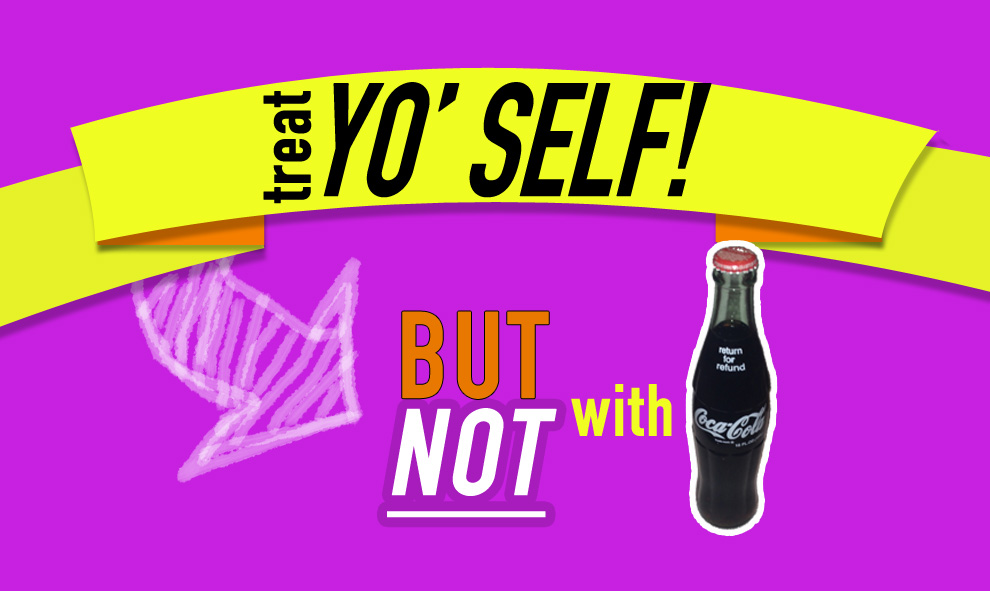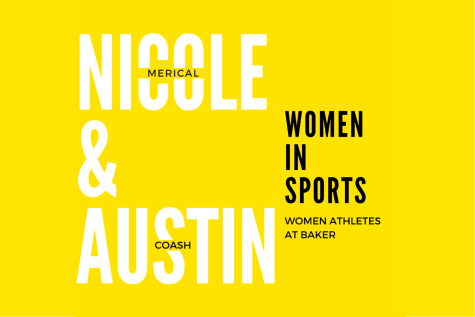Coke uses misleading ads to boost sales
Some combinations simply do not make sense. I always thought it was weird to wear all black in the summer. Peanut butter and jelly may be appealing to most, but what about peanut butter and pickles? Or taking a “leisurely vacation” to Iraq? Now the soda industry is introducing a new form of cognitive dissonance: healthy habits and sugary soft drinks.
Yes, you heard me correctly. Over the past several years, soda sales have fallen due to increasing health concerns. In response to the struggle, Coca-Cola is planning to release “fitness focused” advertisements to cover up the adverse health effects. The general idea of the campaign is to promote exercise over proper diet. In the consumer’s mind, Coca-Cola seems to be saying: “Yes, you can out-exercise a bad diet.”
An upcoming Coca-Cola commercial shows consumers participating in fun or uplifting activities such as laughing or going on a walk with friends, all of which would burn the 140 calories in a can of regular Coke. The ads fail to mention the over-consumption of sugar and chemical effects of the drink on the human body.
In addition to false assumption advertising, Coca-Cola recently increased funding to select research groups in what looks like an attempt to skew the “unhealthy” view of the beverage. In a recent article by the Wall Street Journal, a Coca-Cola spokesperson summarized recent criticisms, saying, “Our company has been accused of shifting the debate to suggest that physical activity is the only solution to the obesity crisis. There also have been reports accusing us of deceiving the public about our support of scientific research.”
Since this interview, the controversy has only heated up. Almost 20 physicians have now resigned from the American Academy of Family Physicians after it accepted a grant from Coca-Cola to fund education about dietary beverages and sweeteners.
The food and drink industry has long been known for employing similar strategies to alter the health perceptions of its products. One example came when McDonald’s sponsored the Olympics. Historically, consumers have voiced concern about this type of advertising, but I think consumers should be taking action. Here is why: Legislation banning certain information on nutrition labels has been considered time and time again in Congress.
Americans are already notoriously bad at measuring the calories they need to eat each day and which nutrients are actually healthy. As time has progressed and Americans have looked to become healthier, companies have continued to try and hide the negative consequences of their products. The new advertising strategy and research funding from Coca-Cola only create further problems by hiding the negative health effects such as elevated blood sugar and bone decomposition. As a result, consumers have been overwhelmed and confused by false and misleading messages.
Clearly, Coca-Cola has set aside its moral compass in order to improve the image of an unhealthy product. Funding a group of physicians dedicated to improving health with money earned from sugary drinks is a combination that, like peanut butter and pickles, does not make sense. Additionally, there is the deception leading consumers to believe that although Coca-Cola products have twice the recommended amount of daily sugar, calories are the only thing that matter.
Regardless of what goes into your body, you can just burn it off, right? Wrong. The idea that you can just dance or run to burn the calories from Coca-Cola may be true, but due to the other adverse nutritional qualities, exercise and Coke is still not a combination that works or makes sense.
Most combinations that do not work can be ignored, like watching someone walk out into the 90-degree sun wearing black jeans, but some, like Coca-Cola’s advertising campaign, require action.
So what should we, the consumers, do? Be careful with how you drink these Coke products and educate yourself on how they can affect your health. Do not be misled by the ads, and learn not to trust studies with flashy headlines. Basically, use your common sense. Treat yourself, if necessary, but do not think you can out-exercise the harmful sugar and chemicals that follow finishing a 32-ounce Cherry Coke.












